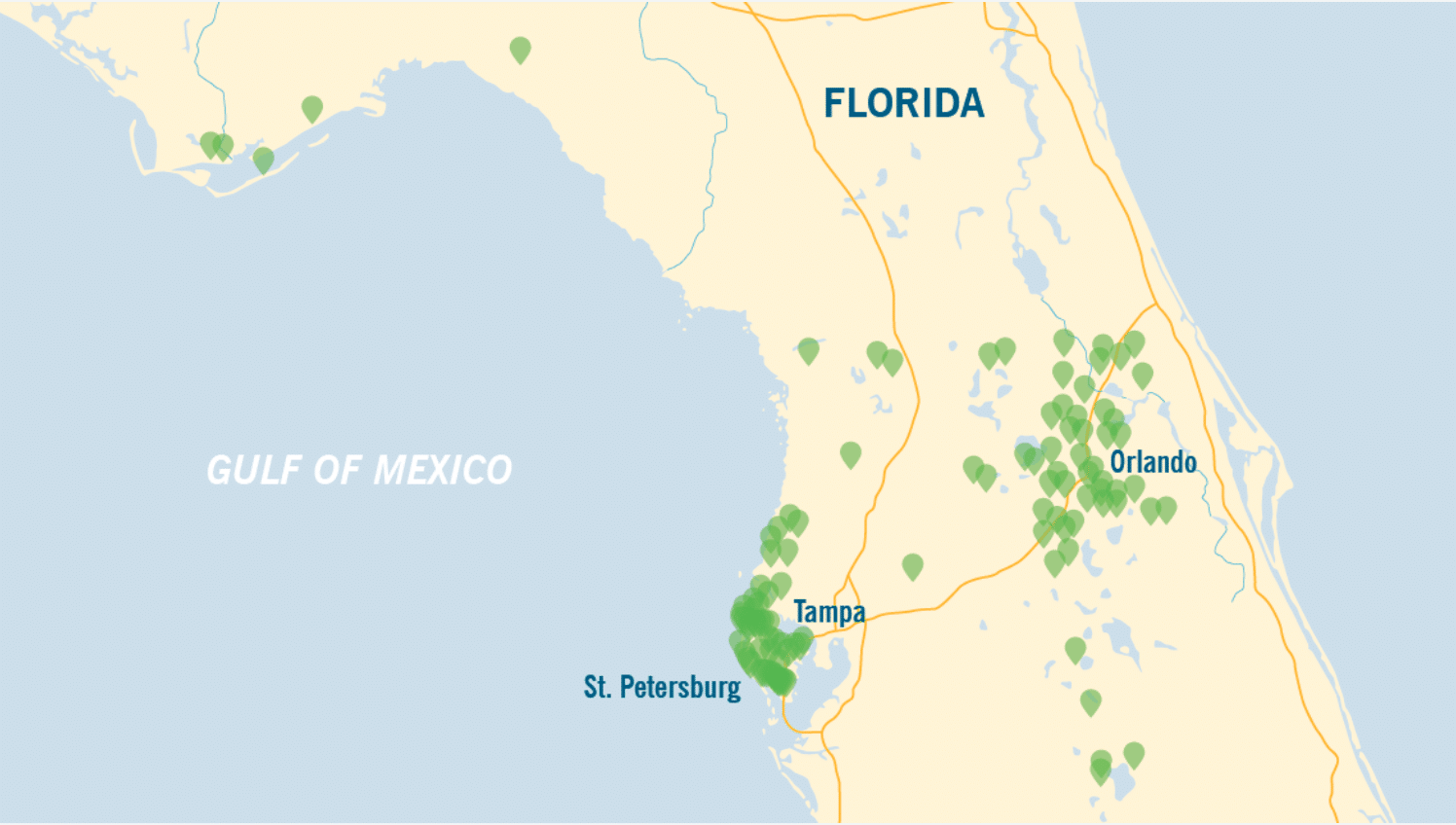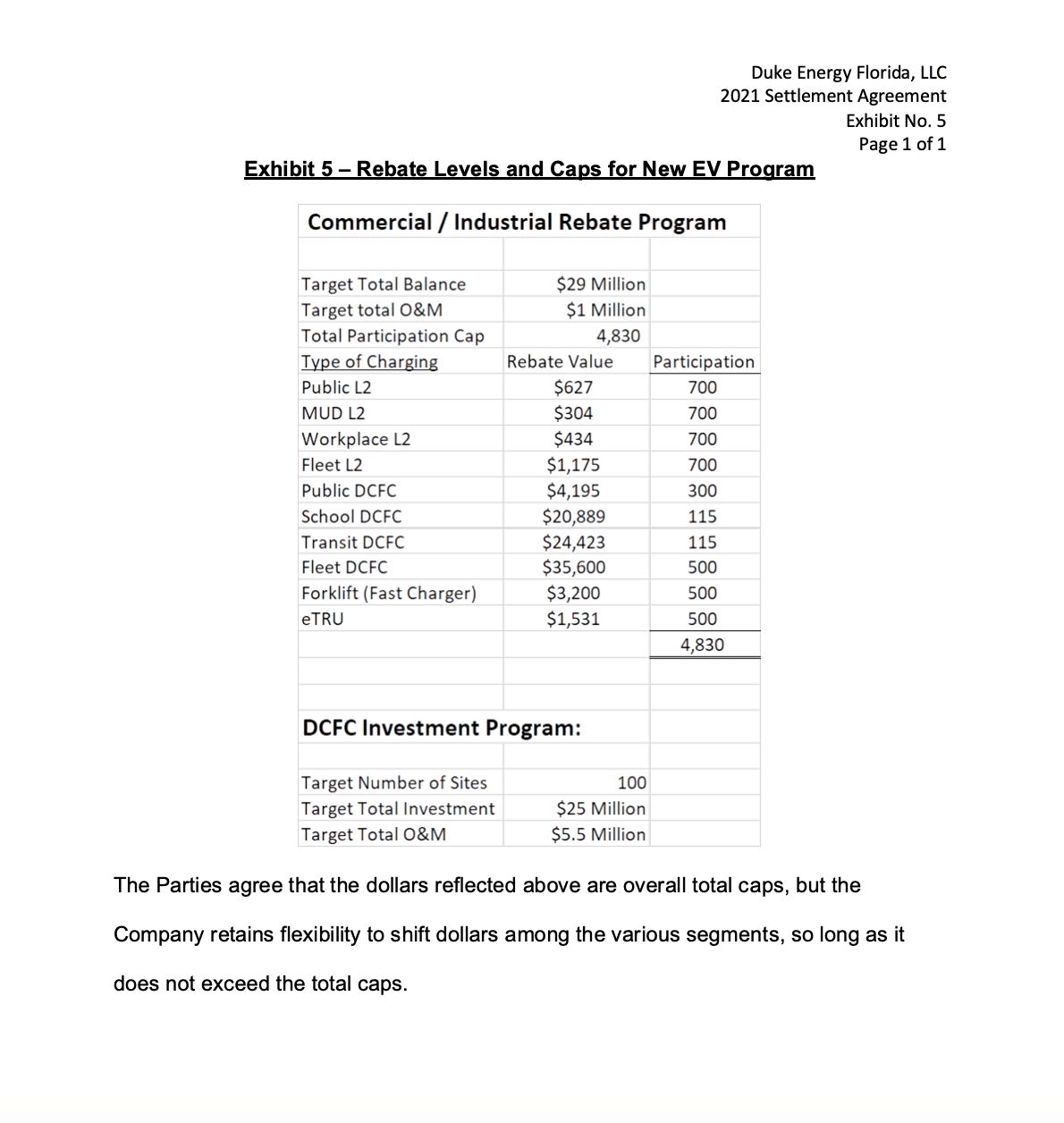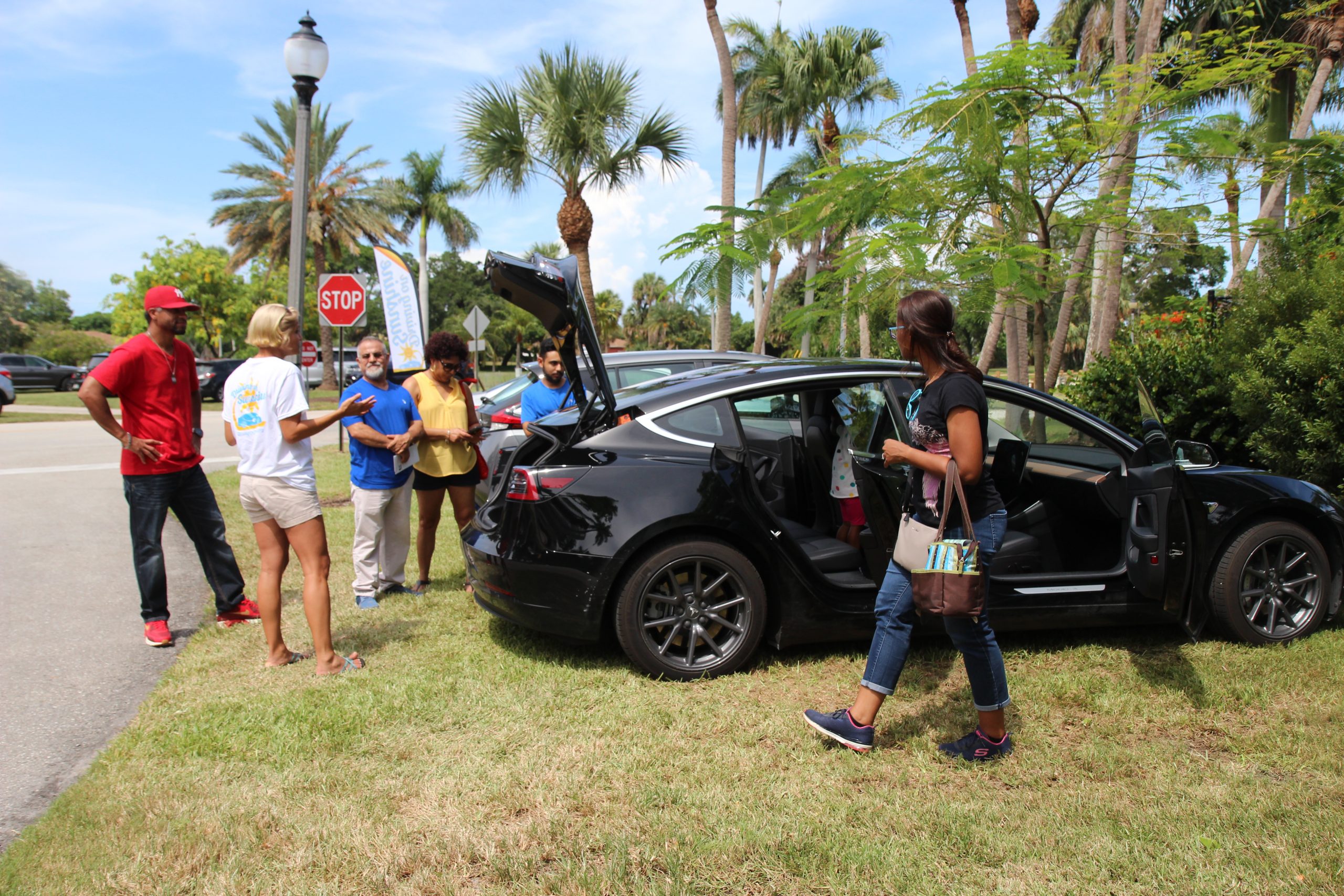In approving Duke Energy Florida’s rate settlement, the Florida Public Service Commission gives the green light to the largest electric transportation program in the state’s history.
Dory Larsen | May 13, 2021 | Electric Vehicles, FloridaThe Florida Public Service Commission (PSC) unanimously approved Duke Energy Florida’s (DEF) rate settlement agreement on May 4 – including a provision that launches a new multi-part electric vehicle (EV) program. In doing so, the Commission approved the largest electric transportation (ET) program in the state’s history.
This is the second ET approval DEF has received from the Commission. The first, much smaller, $7 million ‘Park and Plug’ pilot, was approved in 2017. This more recently approved program is $62.9 million over the four-year period 2022-2025. Notably, to date, the Commission has approved only $10 million in EV investments throughout the state. As explained in the brief “Transportation Electrification in Florida” this represents under 1% of the national utility investment. The sixfold increase will represent tremendous growth in the amount of charging infrastructure available for EV drivers in Duke service territory. The investments will be implemented through three new EV programs.

Program Specifics
Residential EV Non-Time of Use credit program
Participating residential customers will be eligible for a $10 per month credit if they observe off-peak charging. Customers are limited to two charging sessions per month during on-peak hours. The credit will only apply to the months where those limits are met.
Rebate program for Commercial and Industrial (C&I) customer charging stations
The rebate amount will vary depending on the type of segment where the EV charging station is being installed. The rebates range from $304 for Level 2 multi-use dwelling (MUD) chargers to $35,600 for fleet-based DC fast chargers (DCFC). One requirement of customers is that the charging station must be behind a separate meter and take service on a non-demand time-of-use (TOU) rate schedule. The cost target for this component of the program is $29 million (and $1 million for operation and maintenance) for up to 4,830 chargers at C&I customer locations (see table below).
Duke Florida-owned DC Fast Charge (DCFC) station program
This provision will allow Duke to install an additional 100 Utility-owned DCFC stations similar to what was allowed in the 2017 Pilot. The Commission permitted DEF to offer a new tariff for a Fast Charge Fee (“FCF-1”) that will be collected from EV drivers using Utility-owned DCFC stations. The fee is based on the average cost for DC fast charging provided by other DCFC operators across Florida. The cost of this segment of the program is $25 million, with $5.5 million in estimated operation and maintenance costs.

Equity and Inclusion
SACE has consistently advocated that utilities’ investments benefit all members of the communities they serve. Though there were no equity and inclusion goals expressly stated in the approved new EV program as there had been in the Park and Plug Pilot, SACE will continue to work with Duke to realize equity and access goals through effective program implementation. For example, charging infrastructure deployment in underserved communities should include direct engagement with the communities and the community-based organizations that serve them to understand how charging station deployment can best support EV ownership and enhance mobility.

Accountability
DEF representative Lang Reynolds assured the Commission during testimony that data and lessons learned from the EV program will be available in annual reports. This includes aggregated anonymized data around charging behavior. These evaluation, measurement, and verification data points are critical to understanding and overcoming barriers as well as identifying opportunities – SACE continues to advocate that this information be made publicly available.
SACE Support
SACE has consistently held the position that the EV market needs a range of utility investment approaches to support EVSE deployment across a range of customer segments. This was reiterated during public comments in the Settlement hearing provided by SACE’s Florida Energy Policy Attorney George Cavros, and in comments submitted by our Electric Transportation Policy Director Stan Cross, “SACE believes that DEF’s program as proposed in this Settlement Agreement meets this need. DEF’s approach addresses a wide diversity of customer segments and includes different EV adoption-supporting approaches including residential off-peak charging incentives, rebates for EVSE installation, and utility-owned and operated public fast chargers (“DCFC”). All of these approaches are necessary to scale the nascent EV market.”
About Electrify The South
Electrify the South is a program of the Southern Alliance for Clean Energy that leverages research, advocacy, and outreach to promote renewable energy and accelerate the equitable transition to electric transportation throughout the Southeast. Visit ElectrifytheSouth.org to learn more and connect with us.